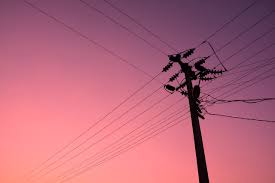A Guide To Help You Understand Fixed-Price Energy Tariffs

Choosing fixed-price energy tariffs permit you to lock in the cost of the energy that you use in your business for a particular period. This implies you don’t require to consider changes in the energy supplier’s system energy rate, and investing more than you wanted. Fixed rate energy deals usually run between 12 and 24 months, though you can find others that can go up to 3 years.
An excellent option to fixed-price energy tariffs are standard variable rate tariffs. The cost of a standard variable rate tariff can change depending upon broader market energy costs. While a standard variable offer doesn’t tie you in, it’s not an inexpensive way to purchase gas and electrical energy for your service. This guide will assist you understand fixed-price energy tariffs.
Understanding fixed energy tariffs
A fixed-price energy tariff guarantees that the standing charge along with your unit cost of electricity and gas which typically makes up your total energy costs can not alter during the length of the energy contract. But this does not imply that you can pay the exact same for the energy bill monthly.
Rather, it’s the cost of your energy system that does not alter. If you pick a repaired energy strategy and use less or more energy each month than another, then your energy costs can alter accordingly.
A fixed-price tariff provides the advantage of a locked cost and competitive market rates. It’s usually attracting those who desire a medium-term or short-term method of budgeting on energy costs.
Most of the times, a fixed-price energy can sometimes be a bit expensive compared to a variable-rate tariff, especially if you have an energy deal that runs for 18 months or more. Remember that a fixed-price energy strategy attracts an exit cost that is payable once you choose to change tariffs prior to the expiration of the energy contract. The energy provider might not charge this charge if you are within a number of days prior to the expiry of the contract.
A fixed-rate energy tariff can be less expensive than a variable rate tariff, but this can depend on the broader energy market. If wholesale rates for energy are high, then a fixed-rate energy deal can cost you more. However, it can be a good concept to consider it as worth the cash since they supply a warranty that the system energy cost can not alter.
Fixing the cost of your energy can suggest paying less energy costs. A fixed-price energy tariff is typically readily available for home owners who set up smart meters on their residential or commercial property.
A clever meter makes sure that you just require to pay the same amount for the energy you utilize. You ought to keep in mind that a clever meter can communicate wirelessly with the energy provider, so you do not need to send out meter readings yourself.
The expiry of fixed-price energy contract
Your energy supplier needs to give you advance notice prior to the expiration of your fixed-price energy agreement. But it’s also an excellent concept to take note of the expiry date of your fixed-price electrical and gas tariff.
When your fixed-rate energy tariff ends, it can return to your energy provider’s default tariff. This standard default tariff is a basic variable rate that can be costly compared to the fixed-rate that you were formerly paying. Keeping in mind the expiry date of the fixed-price energy contract can give you adequate time and options of searching for the best energy handle the present energy supplier or a different energy supplier.
You can think about switching a fixed-rate energy tariff at any time, specifically if you find a better energy offer. Energy prices usually increase in winter, so ensure that you compare energy deals prior to winter sets in to find the best offers.
On the other hand, if you already have actually a repaired energy tariff, then you must discover if the existing energy supplier charges an exit charge for leaving your energy tariff before the expiration of the contract. If the cost savings you made on the brand-new tariff can make up for this expense, you must also inspect. Ask your energy provider the expiration date of your energy agreement, specifically if you are not sure.
Keep in mind that energy providers have the energy price cap. This cap restricts how much energy these energy suppliers can charge you for systems of gas and electrical power for consumers on the basic variable rate. It’s usually revealed as a yearly figure, so it’s the maximum amount an average family can pay if they made use of the typical quantity of energy.
If you have a prepayment meter, it’s worth mentioning that you can choose to switch a tariff. For that reason, you can use energy contrast services to get more competitive prepayment tariffs. This is how it works: you can inform an energy contrast service provider about your home and energy use, and they can provide you numerous energy tariffs to select from.
You can choose to change from a prepayment tariff to a credit meter. Credit tariffs can generally be more affordable than prepayment tariffs. Thus, you need to ask your energy supplier if it can switch meters on your behalf. There is a good chance that the savings you can make by changing may be more than the cost.
In conclusion, there is a vast array of fixed-rate tariffs that have competitive costs. A fixed tariff is inexpensive to make it a popular choice for lots of company owner. The good idea about a fixed tariff is also that the cost per unit of energy can be locked for a minimum of 12 months or 24 months. This indicates you have rate security during the run of your energy contract.
ToriNG
editor's pick
latest video
news via inbox
Nulla turp dis cursus. Integer liberos euismod pretium faucibua




